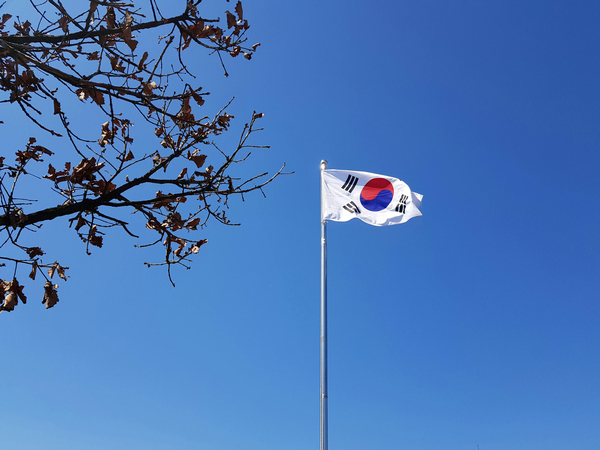New Korean flare-up carries greater air of menace
Jun 13, 2024
Seoul [South Korea], June 13: Border tensions are a fact of life on the Korean Peninsula, but analysts warn that the current spike in incidents - gunfire in the Demilitarised Zone, balloons carrying propaganda to both the North and South and ramped-up rhetoric from Pyongyang - seems "different" and more alarming than usual.
Some are interpreting it as North Korean dictator Kim Jong Un giving up all pretense of wanting to cooperate with the South. Others say he is banging on the war drum to distract his hungry and disaffected people.
But there is another, far more worrying explanation. Some analysts see the latest escalation as a sign that Kim has finally secured the unswerving support of Russia, and is confident that Russian President Vladimir Putin would back him militarily should the need arise.
And that could make Kim overstep the red lines that have held both sides in check on the border since the end of the Korean War in 1953. Additionally, analysts worry that even a minor clash on land, sea or in the air could very quickly escalate if neither side backs down, potentially turning a localized incident into a much more serious situation.
"We can clearly see a change in North Korea's behavior recently, becoming more aggressive," said Hyun Seung-soo, an expert in North Korea-Russian relations at the Seoul-based Korea Institute for National Unification.
"That is because of the change in the relationship between Moscow and Pyongyang, with Putin choosing to partner with North Korea as part of his global political strategy," Hyun told DW.
That arrangement has seen North Korea provide Russia with millions of artillery rounds and an unknown quantity of missiles that have been used by Russian forces in the war in Ukraine, according to the US and other Western governments. Both Moscow and Pyongyang have denied the transfer of weapons.
In return, Russia is believed to have provided fuel to North Korea, along with desperately needed foodstuffs, and Russian scientists are understood to be assisting in the development of the North's military arsenal, including missiles, satellites and nuclear weapons.
If confirmed, such assistance would violate United Nations Security Council resolutions, to which Russia is a signatory.
"I absolutely agree that Kim is more dangerous now because he is confident that he has a large and powerful friend in Russia," Hyun said. "He could see this as a chance to take military actions against the South; this recent rude behaviour is very dangerous."
The sudden uptick in cross-border aggression can be traced back to the North's failed attempt to launch a rocket carrying a satellite into orbit on May 27. The launch was widely condemned, including in South Korea, as a breach of UN Security Council resolutions.
Pyongyang doubled down by launching a barrage of short-range ballistic missiles into the Sea of Japan and, more recently, launching thousands of helium-filled balloons carrying trash and human waste over the border into the South. The balloons caused little damage but have been criticized as "disgusting."
In turn, Seoul has ordered the reinstallation of vast speaker systems on the border to broadcast anti-Kim propaganda messages into the North.
The tit-for-tat escalation has continued, with Pyongyang similarly deploying loudspeaker systems on the border and repeating that it does not recognize the sea border off the west coast of the peninsula.
Kim's sister, Kim Yo Jong, has also warned that the South will be the target of unspecified "new counteraction" if it continues to send propaganda over the frontier and does not halt loudspeaker broadcasts. The North has in the past threatened to use long-range artillery to destroy loudspeakers while analysts have also suggested that it could resort to attacks with unmanned aerial vehicles.
North 'seems very angry'
On Sunday, South Korean personnel stationed in the Demilitarized Zone (DMZ) said they fired "warning shots" after a unit of around 50 North Korean troops crossed the inter-Korean border, designated as halfway across the DMZ that bisects the peninsula. The South has played down the incident and suggested that the North Koreans had inadvertently crossed the poorly marked demarcation line.
Nevertheless, reports of gunfire on the border have raised concern.
"This confrontation seems different, more dangerous than previous times," said Rah Jong-yil, a former diplomat and senior South Korean intelligence officer. "The tension seems greater, as does the possibility of conflict.""The North seems very angry," he added. "They know that their economy is a fraction of that of the South, the people know their way of life is not comparable to us and I can only suggest that the balloons are an attempt to cause as much mischief as possible."
On the plus side, Rah added, the South's primary ally, the United States, has made a number of high-profile moves and statements in recent weeks to underline its commitment to its relationship with South Korea. A US Navy submarine was in port in the South a few weeks ago, a B-1 nuclear-capable bomber flew a mission close to the border, accompanied by South Korean fighters, and the US is maintaining very obvious surveillance of movements in the North.
This week, US ambassador to Seoul Philip Goldberg warned that the US was "ready for anything that happens."
With tensions rising, analysts are looking at two upcoming anniversaries that have, in the past, been the occasion of cross-border claim and counterclaim. June 29 marks the 23rd anniversary of the Second Battle of Yeonpyeong in 2002, when two North Korean patrol boats violated the West Sea border and clashed with South Korean warships. Six South Korean servicemen were killed and 18 injured, while around 13 North Koreans were killed.
Even more significantly, June 25 will mark 74 years since the outbreak of the Korean War, which claimed as many as 3 million civilian and combatant lives and which Seoul and Pyongyang still blame on each other.
Source: Times of Oman








